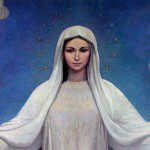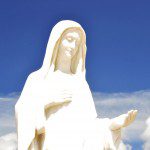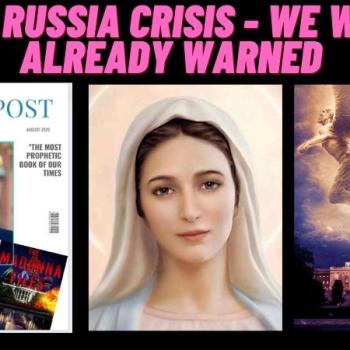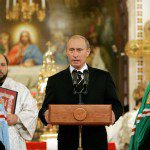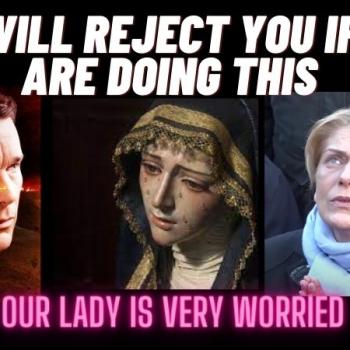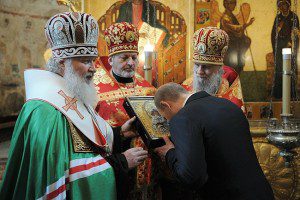
By Stephen K. Ryan
“Vladimir Putin has no soul.” Hillary Clinton
“Not possible to have morality separated from religious values.” Vladimir Putin
Step away for a moment from the narrative pushed by US media about Vladamir Putin’s Christian faith and you may begin to see that the Russian Prime Minister is in fact a true believer.
He reads the Bible frequently and takes with him an Icon of the Virgin Mary whenever he flys. Vladimir Putin, the former K.G.B secret agent and leader of a county with the most lethal nuclear arsenal next to the United States is an unapologetic devout Russian Orthodox Christian.
Today it is difficult to find a senior level policy maker in Washington D.C. that believes Russia today is run by a Russian Orthodox religious believers. This is a troubling fact that could lead to a misunderstanding of intentions resulting in unforeseen and dangerous consequences between two nuclear powers.
Despite Putin’s firm statements that not enough is being done in the Middle East to protect Christians, the experts in power in Washington D.C. who cut their teeth fighting the Soviet Union and communism in the 70’s and 80’s, view contemporary Russian society as unchanged. They see Russia as a resting bear – a communist, atheist, totalitarian, sleeping bear. Obama says nothing as Christians are slaughtered in the Middle East
Presidential candidate Hillary Clinton once harshly lampooned George W Bush’s revelation that after sitting down with Putin he saw the “Souls in Putin’s eyes”. Asked about George W Bush’s views on Putin’s faith Hillary retorted – “Vladimir Putin has no soul.”
Western media is incapable of imaging the spiritual revival that has taken place in Russia since the fall of Communism. Western media continues to portray Putin’s talk of faith as a cynical geopolitical scheme. But the Western views simply don’t hold up against the obvious facts.
Plavo Slavie in a recent article writes: … In Puitn’s autobiography “First Person”, published in 2000, the Russian President declared that the first line in every Russian law should refer to moral values. He wants Russia to be as aware of its spiritual heritage as it is of its political and geographical position.President Putin is convinced that spirituality has a profound effect on the way a culture develops, providing an indispensable moral compass that goes deeper than passing political expediency and secular “freedom”.
After Vladimir Putin was selected as “Time Man of the Year”, Time managing editor Richard Stengel sat down with Vladamir Putin who answered several questions regarding his religious beliefs, and the role of religion in Russia.
TIME: One of the issues that is being discussed in our presidential election is the role of faith in government…. What role does faith play in your own leadership and what role should faith play in government and in the public sphere?
PUTIN: First and foremost we should be governed by common sense. But common sense should be based on moral principles first. And it is not possible today to have morality separated from religious values. I will not expand, as I don’t want to impose my views on people who have different viewpoints.
TIME: Do you believe in a Supreme God?
PUTIN: Do you? … There are things I believe, which should not in my position, at least, be shared with the public at large for everybody’s consumption because that would look like self-advertising or a political striptease….
TIME: Earlier you used the phrase, Thou shalt not steal. Have you read the Bible?
PUTIN: Yes, I have. And the Bible is on my plane. I fly frequently, you know. And on the plane I use, there is a Bible. I also have an icon (of the Virgin Mary) there with some sewing on it. I fly long distances. We’re a vast country. So I have time there to read the Bible.
TIME: I understand that you don’t want to be public with your religion. But is there some way we can characterize your faith?
PUTIN: You could say that it is my deep conviction that the moral values without which humankind cannot survive cannot be other than religious values. Now, as regards a specific church or other establishment, that’s a separate matter. As somebody said once, if God exists, he does know that people have different views regarding church.
TIME: Now the situation is emerging whereby the Russian Orthodox Church is apparently becoming a dominating force in Russia. It’s the only church that has signed official relations on cooperation with the Ministry of Defense, law-enforcement agencies and the Foreign Office….
PUTIN: …. Our law recognizes four traditional religions in Russia. Our American partners criticized us for that, incidentally, but it has been defined by our lawmakers. These traditional Russian religions are the Orthodox Church, Judaism, Islam and Buddhism.
TIME: …. [I]t’s still hardly proper in a secular country for the top military brass of the General Staff under the command of their Chairman to hold a service together with the top hierarchy, as occurred at the Orthodox Church at the Christ the Saviour Cathedral to commemorate the 60th anniversary of the Soviet nuclear bomb.
PUTIN: Well, I would say that if those General Staff brass were Jews, Muslims or Buddhists and would have chosen to celebrate this wonderful event at other religious shrines, I would welcome that. So you cannot talk about the inequality of any of those religions. But still some 80% of the Russians consider themselves Orthodox Christians, which makes the Russian Orthodox Church the largest of them all.
Russian expert Leon Aron wrote an article In “Foreign Policy” magazine, “Everything You Think You Know about the Collapse of the Soviet Union Is Wrong”
Leon Aron: “Every revolution is a surprise. Still, the latest Russian Revolution must be counted among the greatest of surprises. Virtually no Western expert, scholar, official, or politician foresaw the impending collapse of the Soviet Union. Most foreign policy experts were puzzled by its demise. One of the architects of the U.S. strategy in the Cold War, George Kennan, wrote that, in reviewing the entire “history of international affairs in the modern era,” he found it “hard to think of any event more strange and startling, and at first glance inexplicable, than the sudden and total disintegration and disappearance of the great power. Richard Pipes, perhaps the leading American historian of Russia called the revolution “unexpected.” in an article titled: “The Strange Death of Soviet Communism.”

